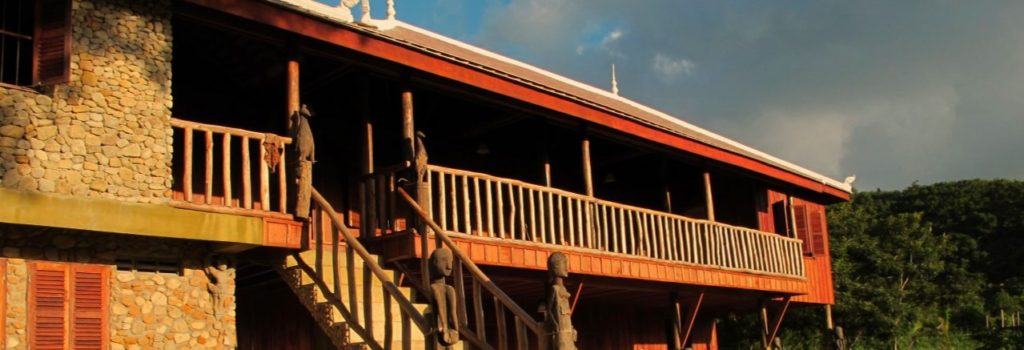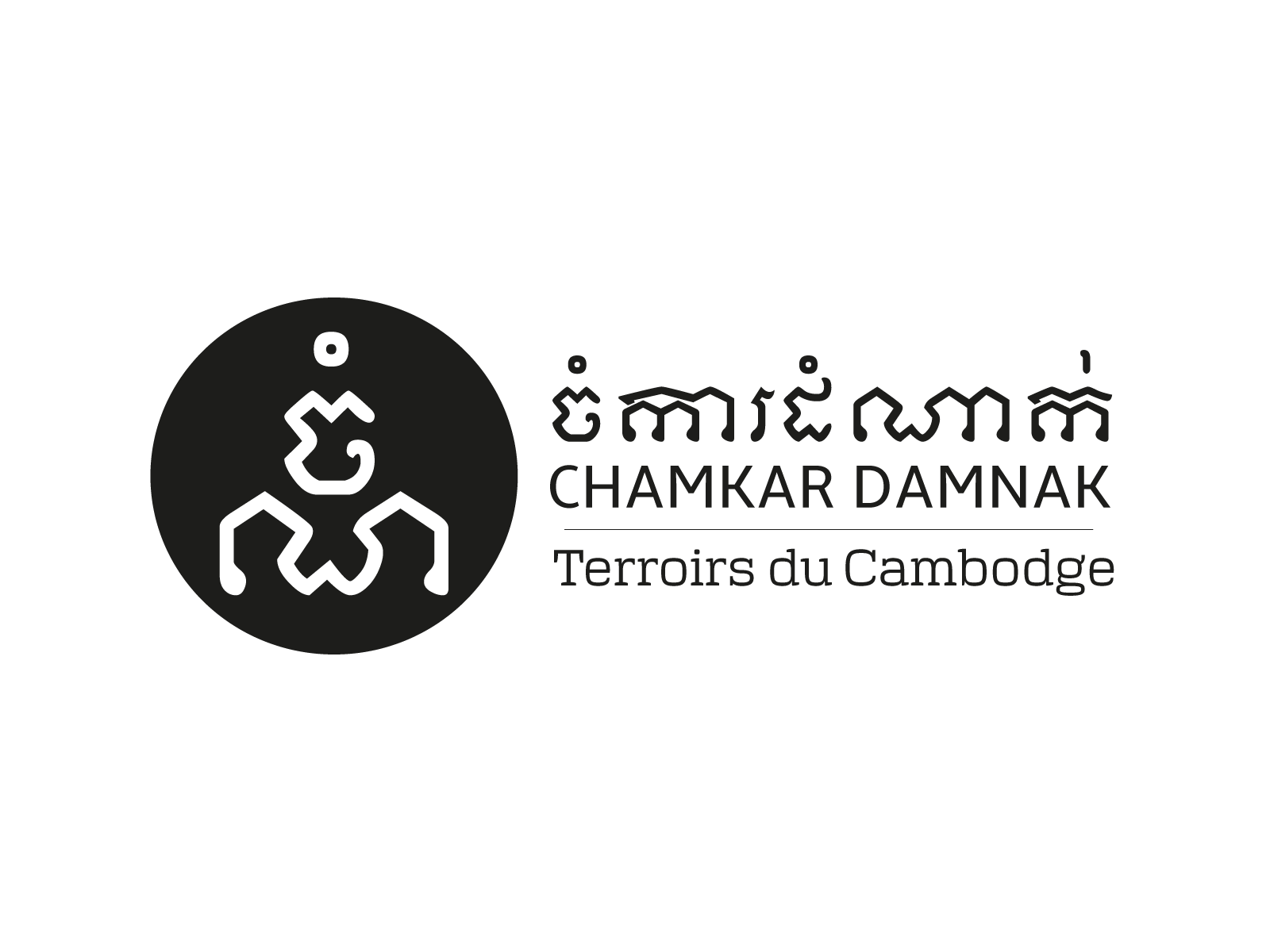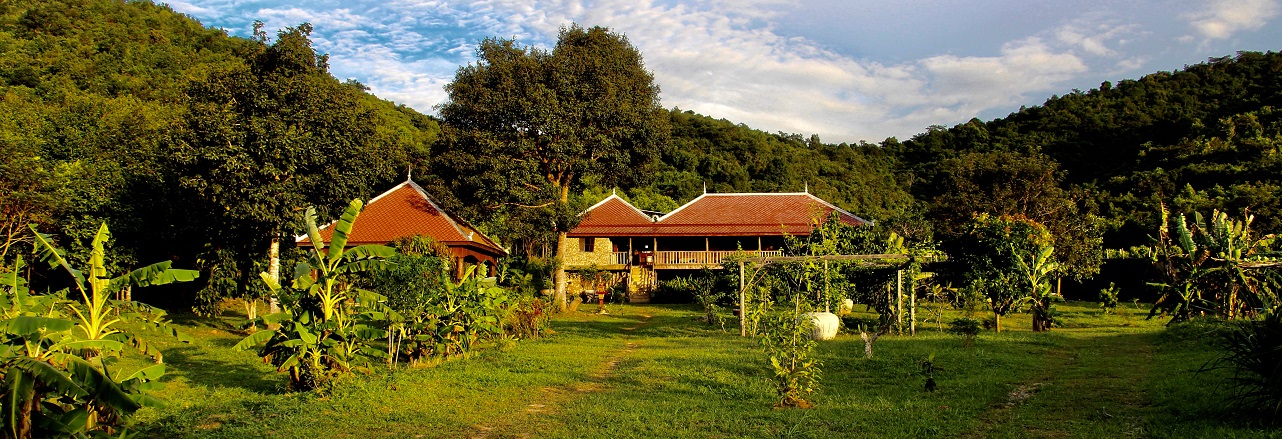
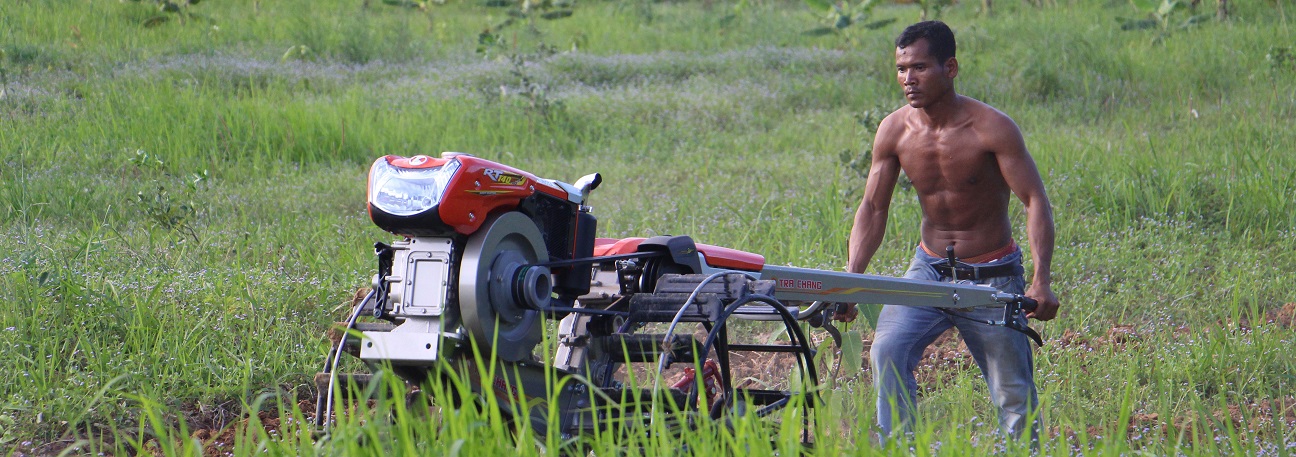
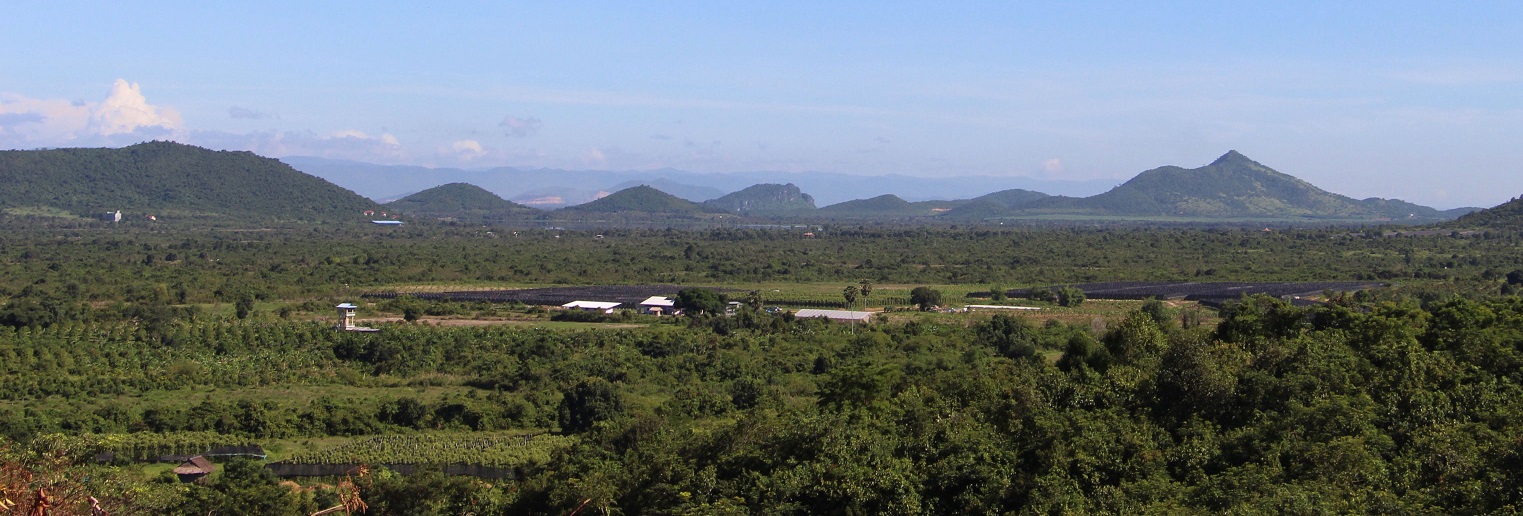
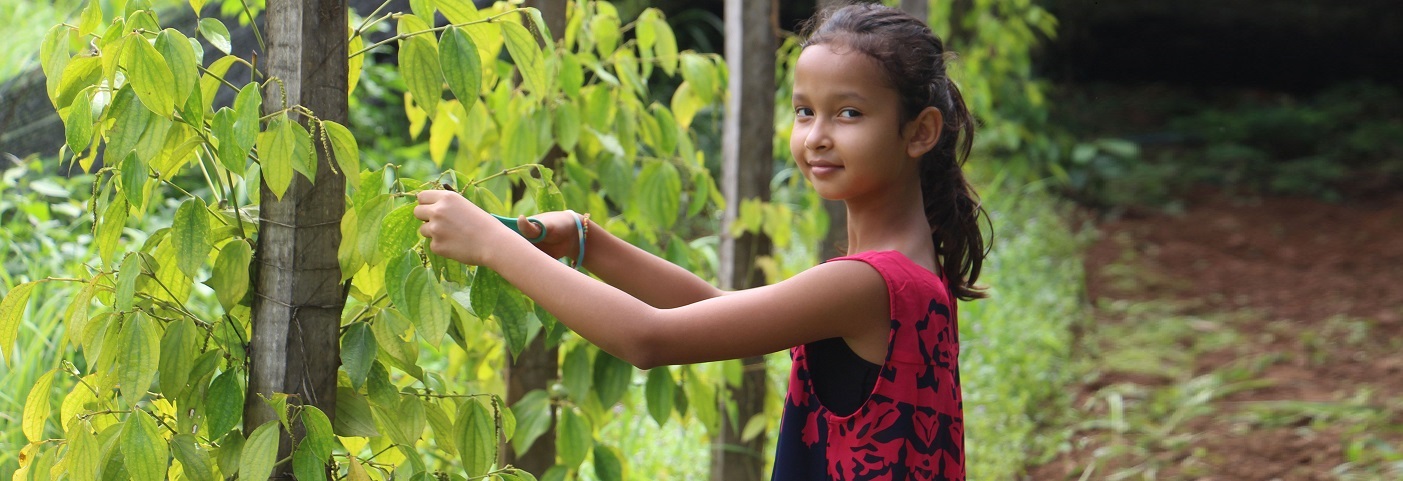
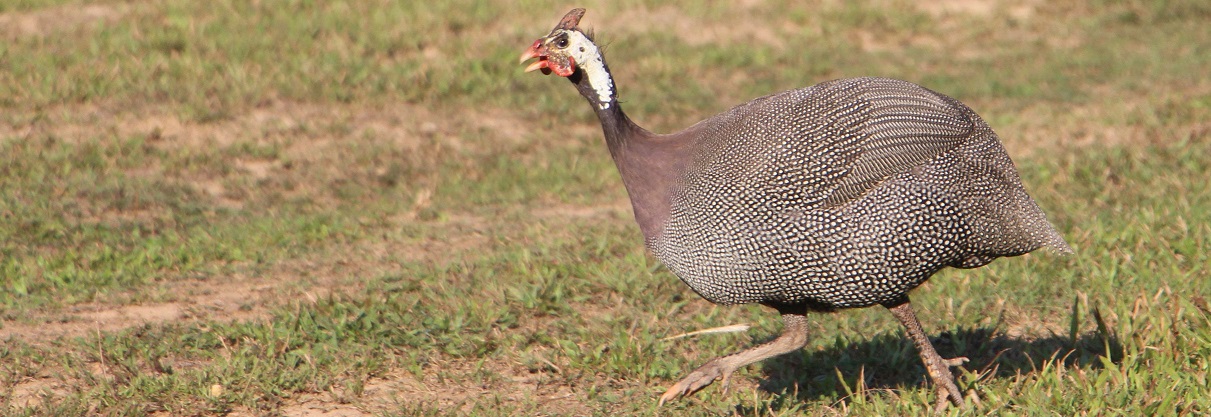
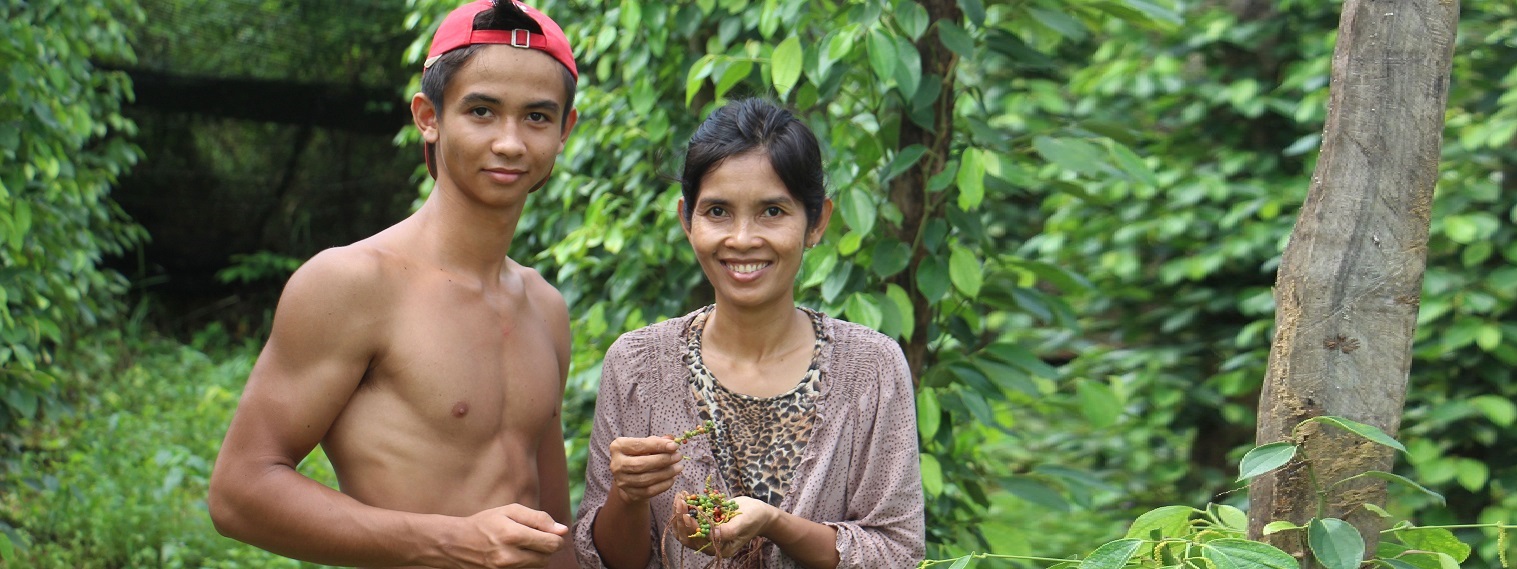
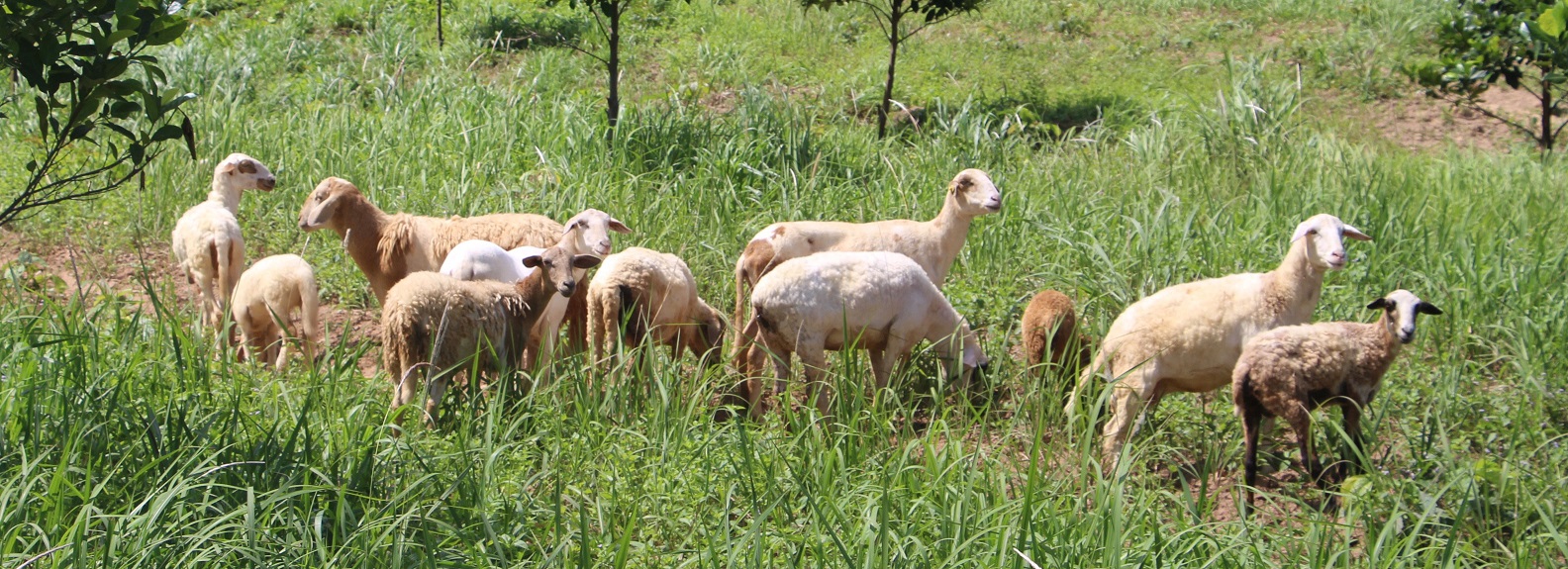
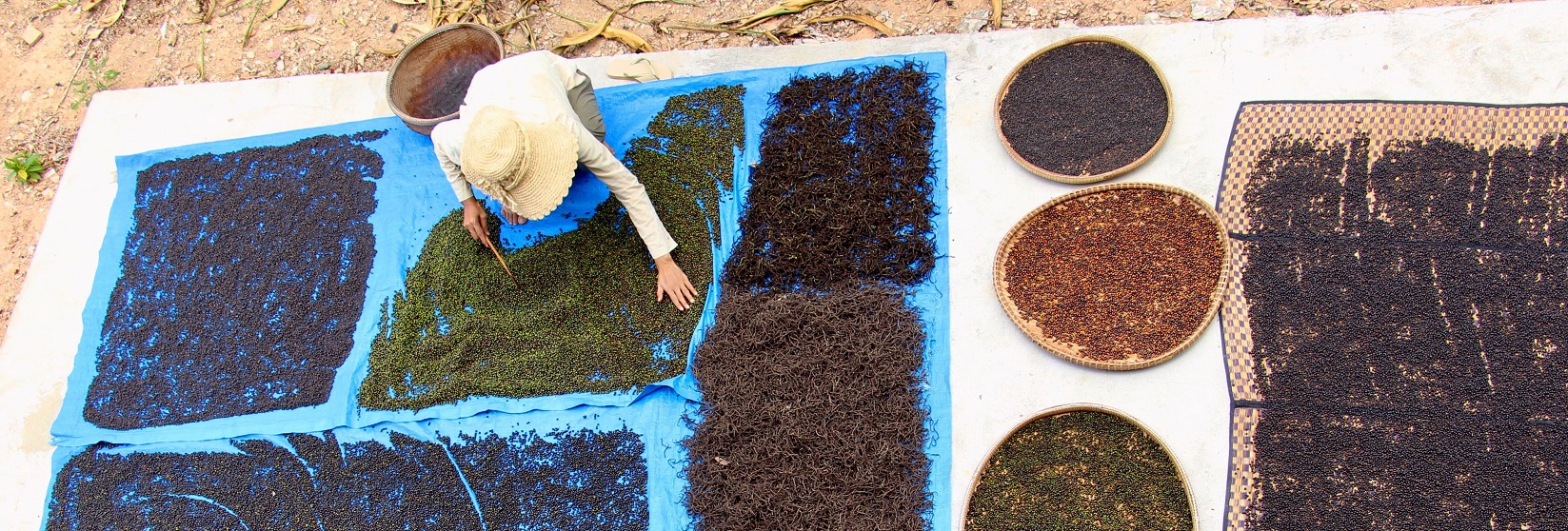
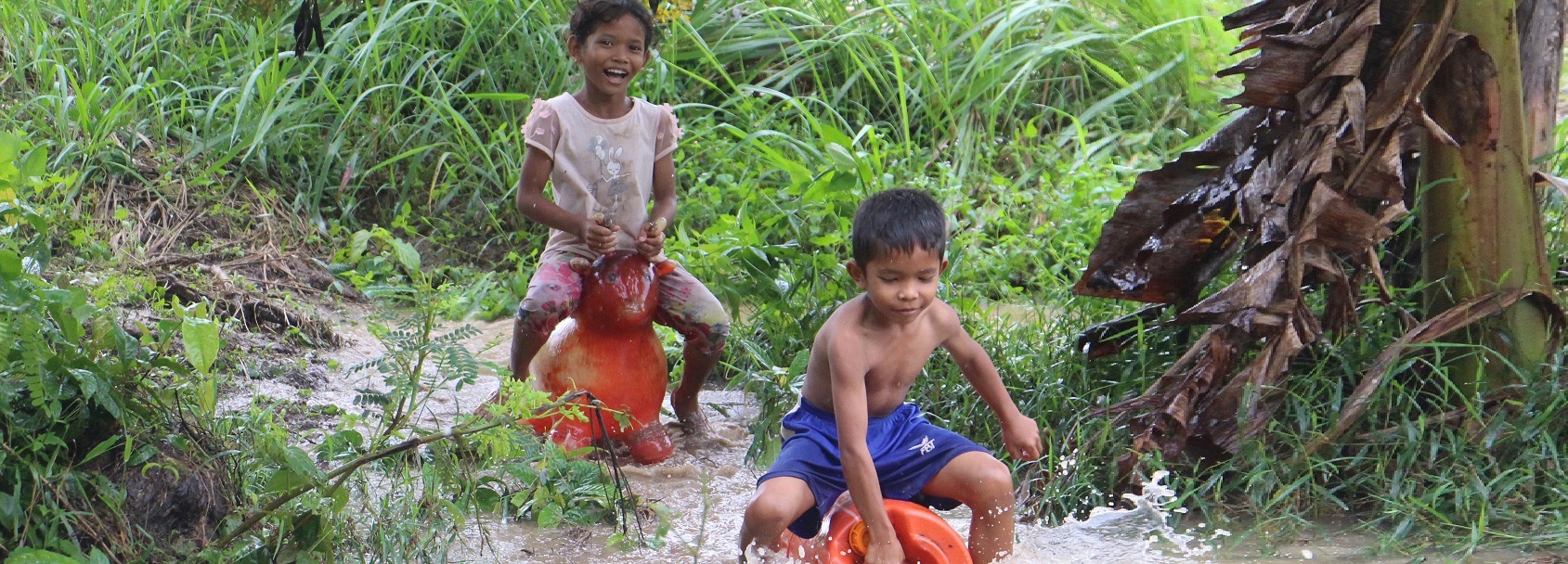
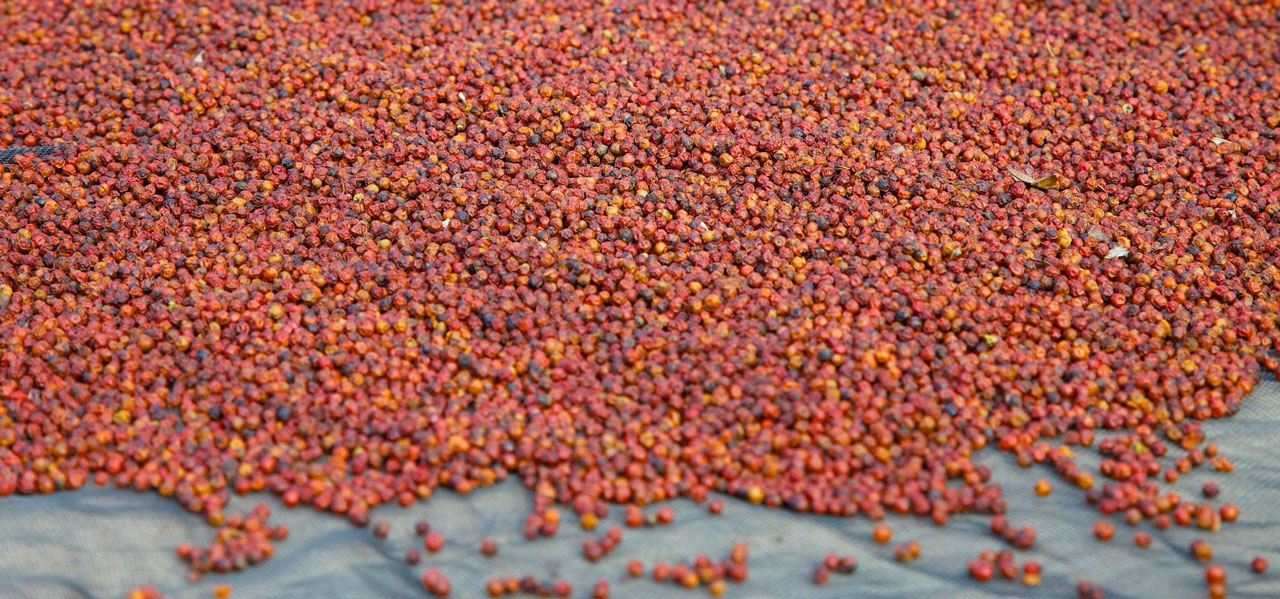
Chamkar Damnak
Des Produits Bio
pour un public de connaisseurs
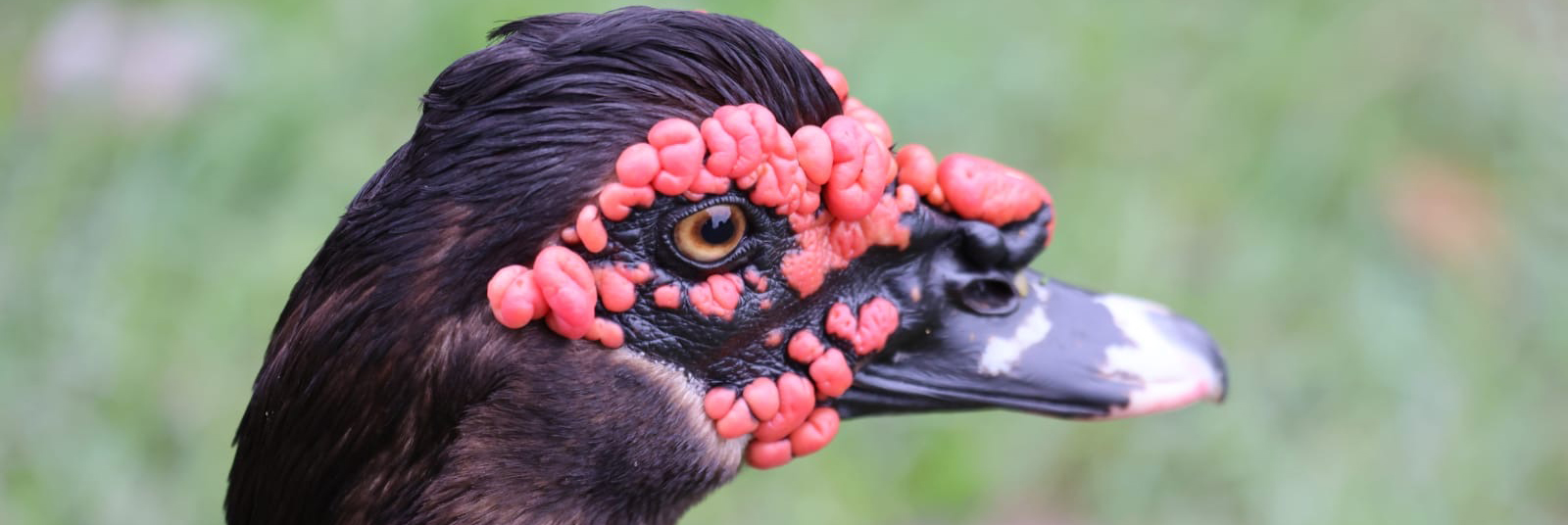
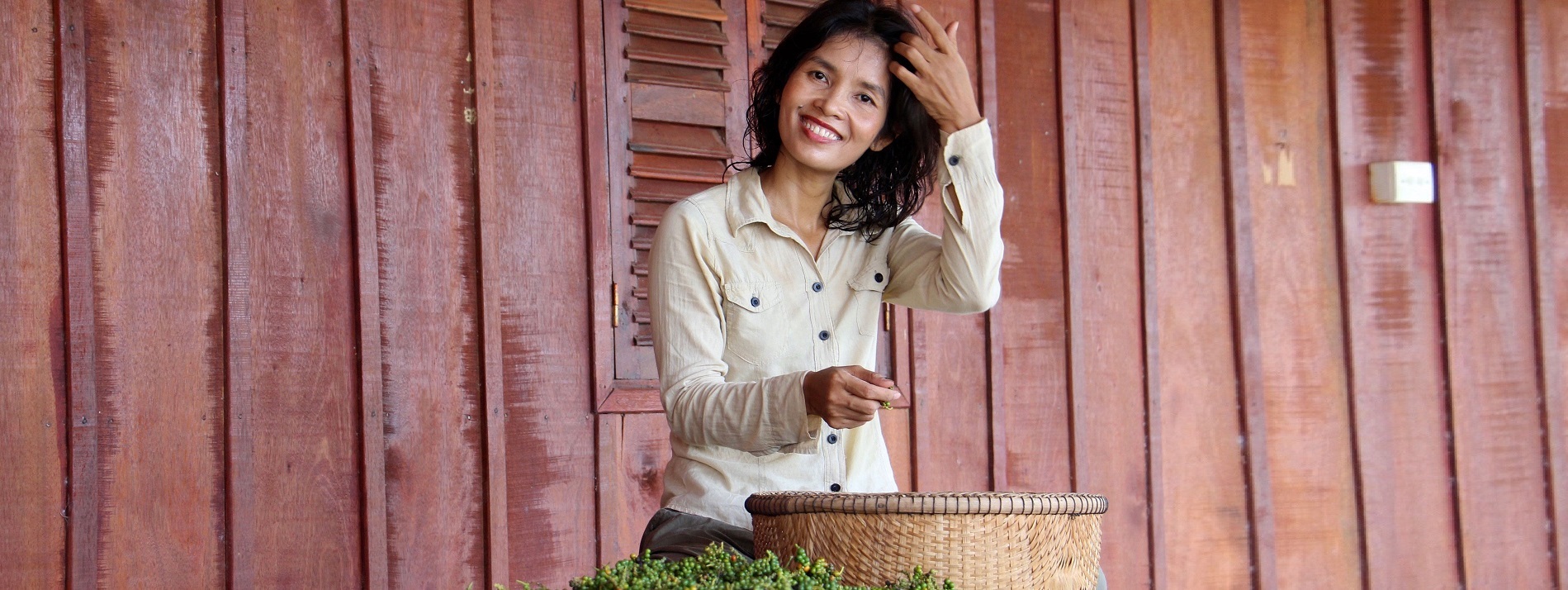
Our plantation is located in the heart of the « Protected Geographical Indication» area.
Located in the heart of the « Protected Geographical Indication» area Chamkar Damnak we strive to stay true to the spirit of the first pepper planters by sticking to traditional organic agriculture but we also bring our personal touch by using powerful elephant fertilizer from our animals in Ratanakiri province.
Our pepper is very appreciated by food and gastronomy professionals and by an ever increasing number of connoisseurs who make up the bulk of our clientele.
Apart from pepper under its various forms, we also cultivate mangoes, durian, sandalwood, mangosteen, jackfruit, dragon fruit…
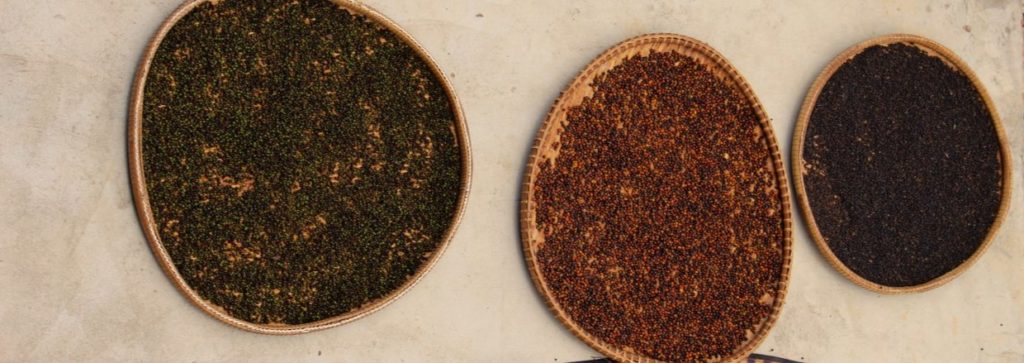
A Pepper widely recognized for its gustatory qualities
Kampot pepper is a seaside pepper, some experts say it tastes of lime blossom, others detect jasmine, mint or eucalyptus; they all agree, though, that pepper from Kampot, south-east Cambodia, is one of the world’s best. But it was nearly lost for ever: in the 1970s, the Khmer Rouge ordered that Cambodia’s pepper vines be grubbed up and replaced with rice paddies.
However, some farmers in the Kampot province kept alive the skills and traditions of pepper cultivation and in the 1990s started producing small amounts in the hillsides that run down to the Gulf of Thailand.
The best are cultivated using organic methods, some with crab shells as fertiliser to nurture the climbing stems, and fallen branches as supports.
Kampot black pepper goes well with fish and shellfish, but in Cambodia you can eat fresh green peppercorns still on their stalks: they are served all over the country but are at their best in their home province. The seaside town of Kep, near the Vietnamese border, is the crab capital of south-east Asia, and restaurants in its seafront crab market sell fried, freshly caught crab with Kampot pepper.
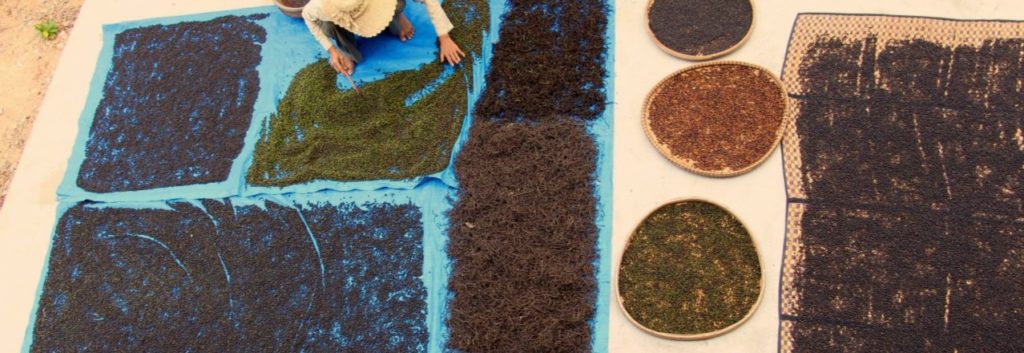
A tradition that takes deep root in Kep-Kampot’s ancient history
« Chamkar Damnak » takes root in Kep-Kampot’s ancient pepper history.
Before the war our plantation was part of « Chamkar Hâng », « Hâng’s field » by the name of the Chinese grand father who owned the property.
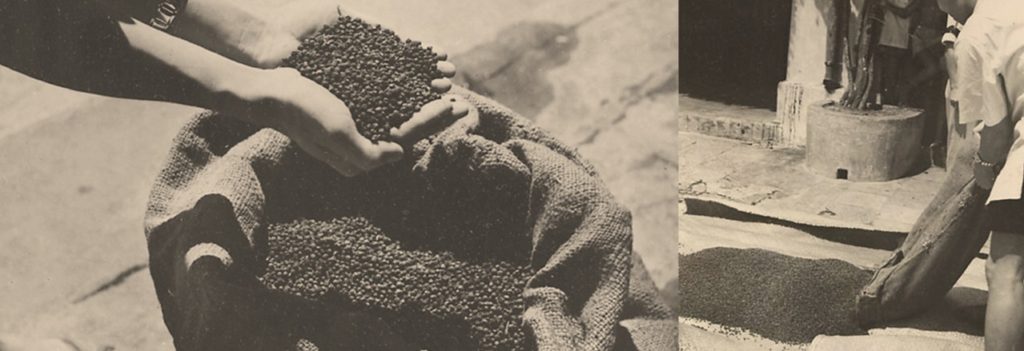
A TRADITIONAL CROP
« Chamkar Damnak » takes root in Kep-Kampot’s ancient pepper history. Before the war our plantation was part of « Chamkar Hâng », « Hâng’s field » by the name of the Chinese grand father who owned the property.
ORGANIC AGRICULTURE
Chamkar Damnak strives to stay true to the spirit of the first pepper planters by sticking to traditional organic agriculture but we also bring our personal touch by using powerful elephant fertilizer from our animals in Ratanakiri province.
A CONNOISSEUR’S PRODUCT
Our black, white, red or green peppers are very appreciated by food and gastronomy professionals and by an ever increasing number of connoisseurs who make up the bulk of our clientele.
A PLACE DEDICATED TO GREEN TOURISM
Chamkar Damnak is a timeless place, nestled in Kep’s hinterland, built up against hills covered in lush vegetation, one lives there to the rhythm of seasons, far away from the chaos of a country in constant transformation.
AN EXOTIC GARDEN
Planted after pepper and sandalwood, the garden surrounding the farm is quickly growing, bringing a warm feeling to the place. Like in all our properties a wide variety of plant species can be found, some of which even coming from the Indian Ocean !
GPI
Located in the heart of the Protected Geographical Indication area, Kampot’s Pepper now enjoys international recognition.
